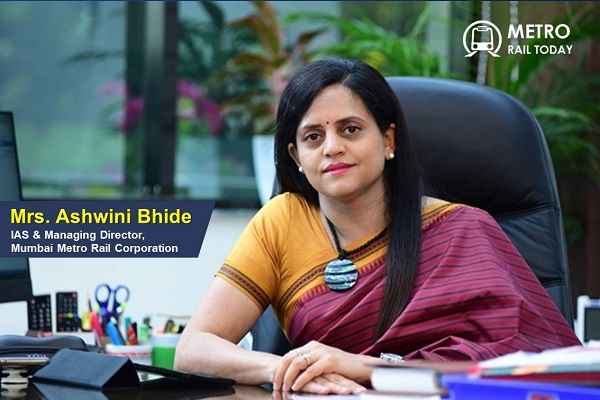In the world of urban development and infrastructure, Ashwini Bhide stands as an unwavering beacon of strength, determination, and unrelenting dedication to public service. An Indian Administrative Service (IAS) officer, she has transformed the way Mumbai, India's bustling financial capital, perceives and experiences urban mobility. From her early days as a young, determined officer to her groundbreaking leadership as Managing Director of the Mumbai Metro Rail Corporation Ltd. (MMRCL), Bhide's career is a remarkable story of perseverance, leadership, and vision, which continues to inspire countless individuals, particularly women, to break barriers and make lasting change.
The Foundations of a Lifelong Commitment to Service
Ashwini Bhide’s journey into the corridors of public service began with her success in the Union Public Service Commission (UPSC) exams in 1995. From the very beginning of her career, she displayed a unique understanding of the complexities of governance and administration. Her early postings, including her time as Assistant Collector of Kolhapur district and CEO of Sindhudurg and Nagpur districts, laid the groundwork for her later contributions in urban infrastructure.
These formative years allowed her to engage with people on the ground and grasp the immense challenges of public service, from addressing the immediate needs of rural populations to understanding the intricacies of urban development. Bhide's experience at the grassroots level helped hone her leadership style, grounded in empathy, thorough understanding, and the ability to take swift, effective action.
Pioneering Change in Mumbai’s Urban Infrastructure
A significant portion of Ashwini Bhide’s career has been devoted to reshaping the urban landscape of Mumbai, a city that, while thriving economically, faces unique infrastructural challenges. As a senior civil servant, Bhide worked on some of the city’s most ambitious and transformative projects.
Perhaps her most visible legacy comes from her role in the Mumbai Metro Line 3 project (the Aqua Line), a project that promises to revolutionize the city’s transportation network. As Managing Director of MMRCL, Bhide was tasked with driving this ambitious project forward, one fraught with immense complexity and multiple layers of public scrutiny.
The path was anything but smooth. Leading a project of this scale meant managing multiple facets of urban governance: land acquisition, environmental concerns, navigating political sensitivities, and dealing with the demands of Mumbai’s ever-growing population. Bhide’s exceptional leadership was truly tested during the contentious Aarey car shed controversy, which saw passionate environmental protests over the loss of greenery in one of Mumbai’s few remaining green spaces.
Navigating Challenges with Tenacity
The Aarey car shed controversy stands out as one of the most contentious issues Ashwini Bhide faced in her career. Environmentalists and residents voiced their strong opposition to the project, concerned about the ecological impact of the proposed site. Public protests and legal challenges followed, placing immense pressure on Bhide and her team. In this critical moment, Bhide demonstrated a remarkable blend of steadfastness and strategic thinking. She remained resolute, balancing the immediate developmental needs of Mumbai with long-term environmental considerations.
It has been a life-changing experience. It’s a big project, involving the island city, with an underground network and 27 stations, that required a lot of interventions—socially, location-wise and infrastructure-related. It needed a lot of energy and patience. Many old learnings came handy. From Mumbai’s perspective too, Metro-3 is going to be a game changer. - Ashwini Bhide, IAS & MD, Mumbai Metro Rail Corporation.
For Bhide, the challenge was not just about meeting construction deadlines, but about finding solutions that would align with the city's pressing infrastructural needs while remaining sensitive to public concerns. Her leadership involved engaging with multiple stakeholders, clarifying the project’s importance for Mumbai’s future, and finding common ground where possible.
Bhide’s resolve was tested again with the intricacies of land acquisition, which required her to oversee delicate negotiations with affected residents and businesses in the dense and rapidly expanding urban environment of Mumbai. Many of these residents were legal tenants, adding an extra layer of complexity to the rehabilitation process. Yet Bhide’s careful management ensured that these challenges were addressed with sensitivity and fairness.
I think it will have a large impact by providing the most coveted safer, speedier, and more comfortable transport for Mumbai city. It will provide a transport mode empowered with modern features, which the citizens of Mumbai deserve, because there is too much overcrowding on the suburban train network affecting their daily commute to a substantial extent. - Ashwini Bhide.
Meanwhile, the technical challenges of constructing an underground metro line in such a vibrant, densely populated city were formidable. The project faced issues such as tunneling beneath heritage buildings, navigating the city’s complex underground utilities, and minimizing the risk of structural damage. The task of managing the environmental impact of tunneling, especially in close proximity to the Mithi River, required Bhide’s sharp attention to detail and an unwavering commitment to technical precision.
A Model of Effective Leadership
Throughout all these trials, Ashwini Bhide showcased leadership traits that set her apart. Above all, she displayed an unshakeable focus on execution. Whether it was tackling political challenges, engaging with the public, or managing complex technical and legal hurdles, her primary focus remained clear: delivering the Metro Line 3 project on time and with minimal disruption to the public.
Her leadership also demonstrated that successful urban infrastructure development is not only about technical expertise but also about empathy and stakeholder engagement. Despite the overwhelming pressures, Bhide made it a point to communicate openly with the public, addressing their concerns about noise, dust, and the inevitable disruptions that come with large-scale construction. She ensured that the benefits of the Metro Line 3 project were clear — offering hope for reduced congestion, better air quality, and a more sustainable future for Mumbai.
Her Legacy and Lasting Impact
Ashwini Bhide's contribution to Mumbai’s infrastructure extends beyond the Metro Line 3 project. Her leadership was instrumental in other high-profile initiatives such as the Eastern Freeway, the Mumbai Monorail, and the Mumbai Coastal Road project, which are part of a broader vision to modernize Mumbai’s transport infrastructure. As Principal Secretary to Maharashtra’s Chief Minister, Bhide's influence continues to shape the state’s urban development, reinforcing her role as a key architect of the region’s future.
Her ability to balance the needs of development with the often contentious demands of environmental preservation and public well-being makes Bhide a remarkable figure in the world of public service. She is a rare example of a woman leading at the helm of some of the most challenging urban development projects in a male-dominated field. Her success is a testament to the power of determination, strategic vision, and resilience.
An Inspirational Force for Future Generations
Ashwini Bhide’s career is a profound inspiration to aspiring civil servants and young women everywhere. She has shown that effective leadership requires not only technical acumen but also the courage to navigate difficult social and political landscapes. Her story is a living testament to the importance of perseverance and the value of staying true to one’s values — even in the face of intense opposition.
Her work is not just about building infrastructure; it’s about building a legacy of leadership, service, and hope. Mumbai’s future, in no small part, will be shaped by the vision and dedication of Ashwini Bhide. Her journey stands as a beacon for those who dare to challenge the status quo and strive to make a difference — not just for today, but for generations to come.
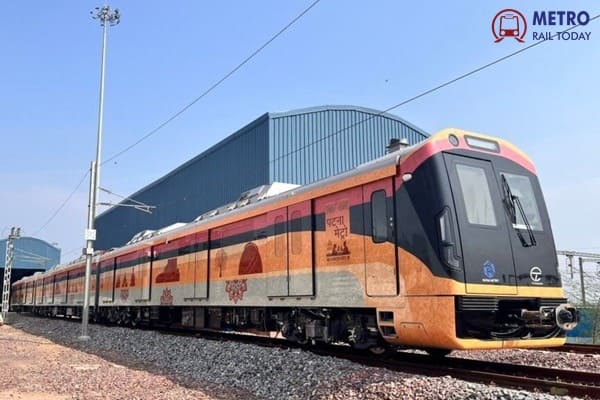 Patna Metro completes First Trial Run on Line 2, Public launch expected soon
Patna Metro completes First Trial Run on Line 2, Public launch expected soon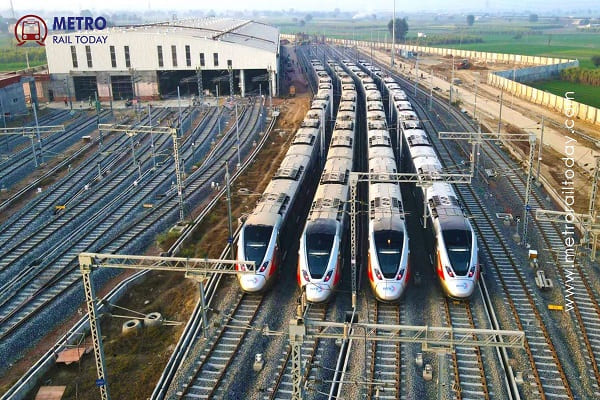 NCRTC floats Tender for 110 MW Solar Power Plant to meet Namo Bharat Corridor's Green Energy goals
NCRTC floats Tender for 110 MW Solar Power Plant to meet Namo Bharat Corridor's Green Energy goals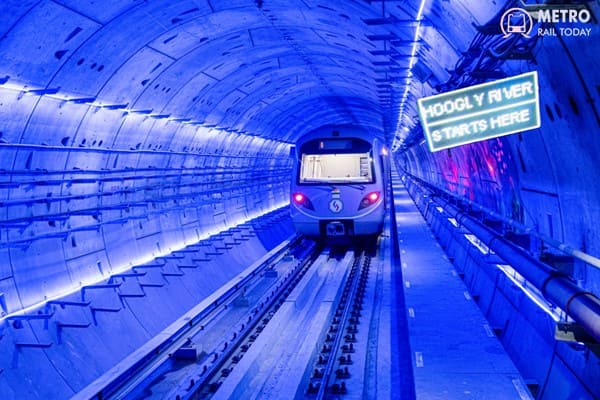 Milind K. Deouskar takes charge as General Manager of Metro Railway Kolkata
Milind K. Deouskar takes charge as General Manager of Metro Railway Kolkata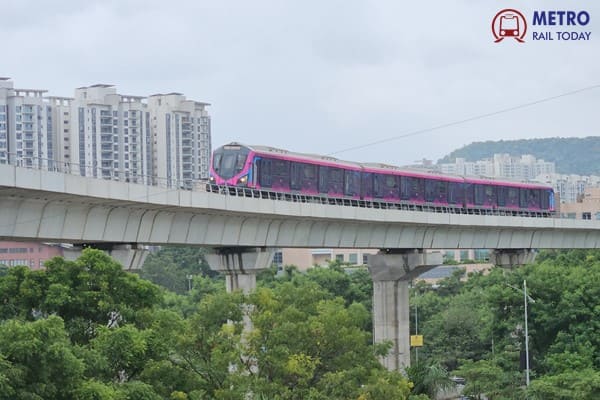 Keolis awarded 10-year O&M Contract for Pune Metro Line 3
Keolis awarded 10-year O&M Contract for Pune Metro Line 3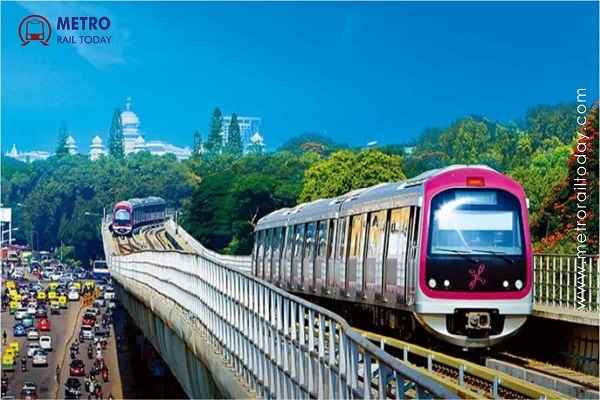 Bangalore Metro Phase 3 Faces Delay as Double-Decker Flyover Design Pushes Deadline to 2031
Bangalore Metro Phase 3 Faces Delay as Double-Decker Flyover Design Pushes Deadline to 2031 NHSRCL Awards Track Work Contract for Mumbai–Ahmedabad Bullet Train Project in Maharashtra
NHSRCL Awards Track Work Contract for Mumbai–Ahmedabad Bullet Train Project in Maharashtra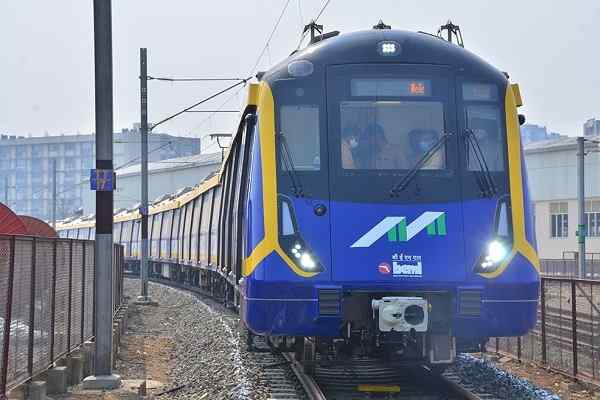 BEML opens job vacancies for Rail, Metro, Defence and Engine Divisions amid expansion drive
BEML opens job vacancies for Rail, Metro, Defence and Engine Divisions amid expansion drive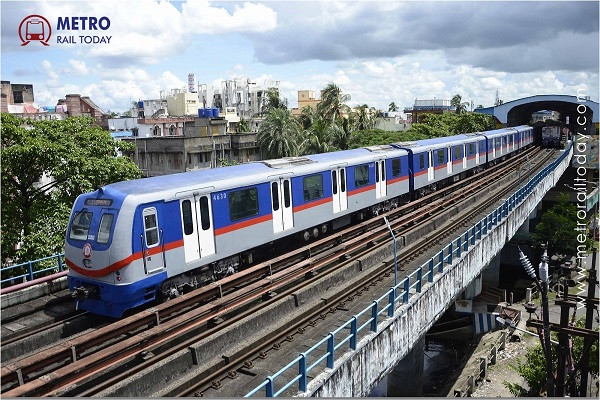 RVNL floats ₹900.75 Crore Tender for Kolkata Metro Rakes, Traction and CBTC Integration
RVNL floats ₹900.75 Crore Tender for Kolkata Metro Rakes, Traction and CBTC Integration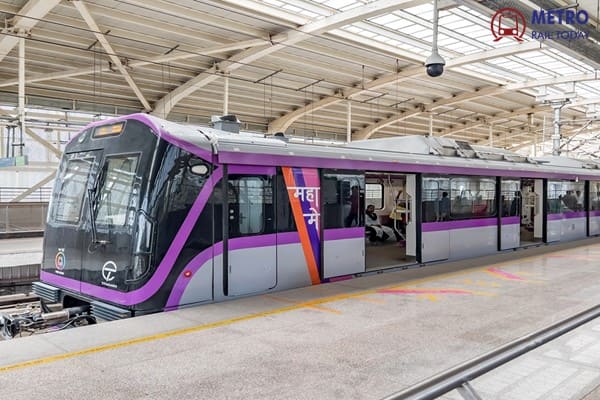 Govt. of India approves ₹2,954 crore Swargate–Katraj Pune Metro Extension Project
Govt. of India approves ₹2,954 crore Swargate–Katraj Pune Metro Extension Project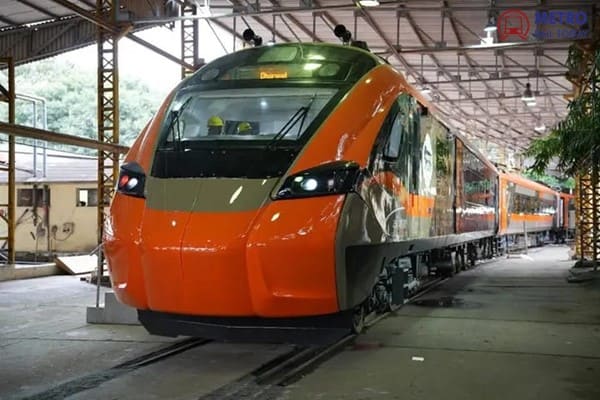 Vande Bharat Sleeper Rake faces delay, Indian Railways to hold back Prototype used in trial
Vande Bharat Sleeper Rake faces delay, Indian Railways to hold back Prototype used in trial